As insurance technology leaders evaluate their AI strategies, a critical decision emerges: should you rely on AI capabilities built directly into core systems (sometimes called “insurance software”) or your underwriting/policy servicing workbench or partner with specialized insurance AI vendors?
While AI solutions built into core software platforms and workbenches deliver clear improvements over manual processing – offering better accuracy and speed than manual work, along with zero integration effort – they still fall short of the optimal solution. Your best option often is integrating AI agents from an insurance AI vendor. Working with an AI partner can bring unmatched specialization, innovation velocity, and strategic focus beyond what’s available from AI packaged into your core systems.
The [Conditional] Case for Built-In AI
Core system and workbench providers have responded to the AI imperative and are embedding artificial intelligence directly into their solutions. The value proposition seems compelling – seamless integration, familiar interfaces, and the promise of AI capabilities without additional vendor relationships or complex implementations.
These built-in solutions leverage their intimate knowledge of system architecture and data structures. They can access workflows and processes platform-wide, embedding AI models that appear perfectly tailored to their software environment. This consolidated approach feels like a natural evolution for insurance technology leaders already managing multiple vendor relationships and integration challenges.
However, this apparent simplicity masks fundamental limitations that can constrain your organization's AI potential, preventing it from gaining the full competitive advantage of insurance AI.
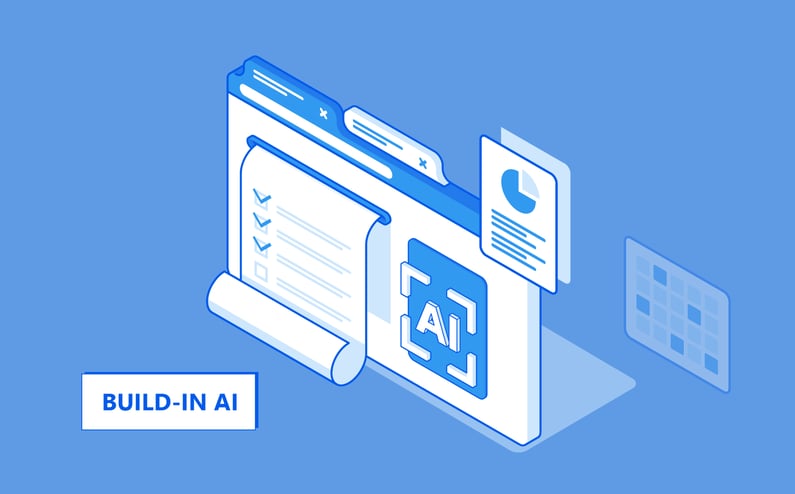
Specialized Insurance AI Innovates Faster
One of the most significant advantages of specialized insurance AI lies in innovation speed and focus. Core system and workbench software providers face a fundamental resource allocation challenge of balancing AI development against maintaining, enhancing, and supporting their primary software platforms. AI represents only one feature among several competing priorities, from regulatory compliance updates to user interface improvements.
Insurance AI vendors, by contrast, dedicate their entire organizational focus to advancing artificial intelligence capabilities within the insurance domain. Every engineering hour, every research investment, and every strategic decision centers on pushing the boundaries of what AI can accomplish for insurance operations. This singular focus creates momentum for innovation and AI scalability.
Consider the development cycles – while core system providers might periodically update their AI capabilities as part of broader platform releases, specialized AI vendors can deploy model improvements, algorithm enhancements, and new capabilities on continuous cycles. This velocity gap compounds over time, creating increasingly significant performance and capability differences.
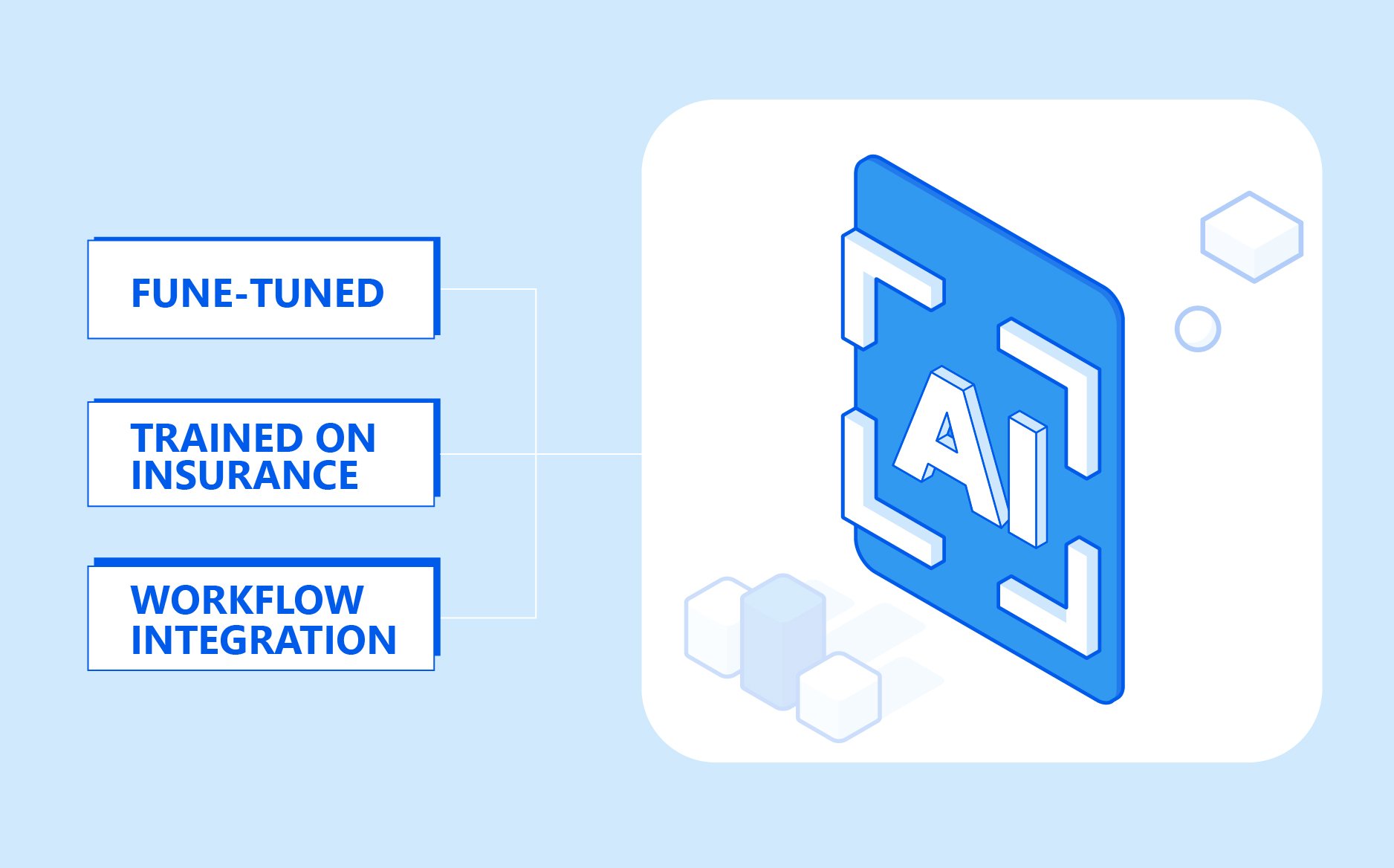
Insurance AI Understands the Industry Better
Insurance AI vendors don't just speak “insurtech” – we live and breathe insurance complexity. This intersection of domain knowledge and technical sophistication yields models built to address insurance's unique challenges with precision that generalist software providers struggle to achieve.
This expertise manifests itself in subtle but crucial ways. Insurance AI vendors understand the nuances of coverage language, the complexity of risk interdependencies, and the regulatory requirements that vary across jurisdictions. They build specialized models trained specifically on insurance data patterns from larger and more diverse libraries of proprietary insurance documents. And all non-private and non-protected information from production, training, and fine-tuning is federated, meaning it’s applied to models used by every customer of that specialized AI vendor. In short, expert insurance AI can deliver this latest “crowdsourced” knowledge into their models without users having to wait for an updated release.
While knowledgeable about insurance workflows, core system builders typically approach AI as a technology capability to be added rather than as a crafted insurance-specific solution. This difference in perspective creates AI systems that are fully integrated out of the box but lack the sophisticated understanding and flexibility necessary for optimal performance in complex insurance scenarios.
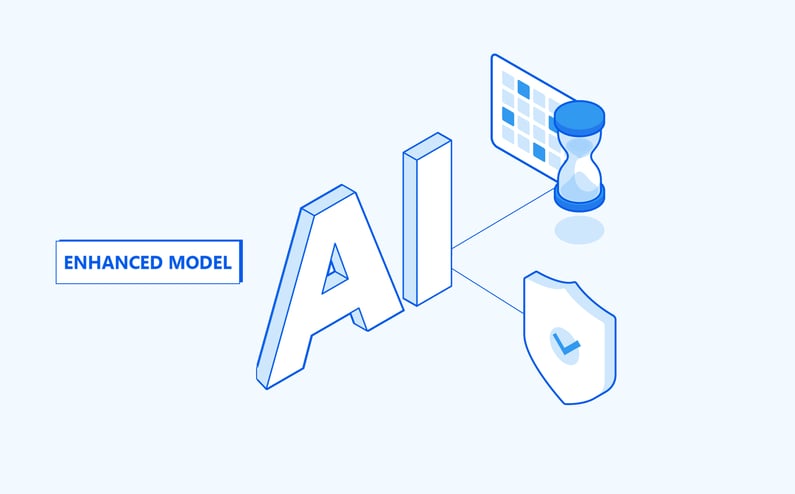
Insurance AI Performs Better
Insurance AI vendors architect their solutions for maximum performance across the insurance value chain. They optimize processing speeds, accuracy rates, and decision-making capabilities specifically for insurance use cases.
This specialization enables continuous model refinement based on insurance-specific feedback loops. When an insurance AI vendor improves its fraud detection algorithms, enhances risk assessment models, or develops new automation capabilities, these improvements immediately benefit all their insurance customers.
Conversely, AI solutions built into or on top of insurance software systems and workbenches must balance optimization across their platforms’ various functions. Again, AI improvements compete with other system enhancements for development resources.
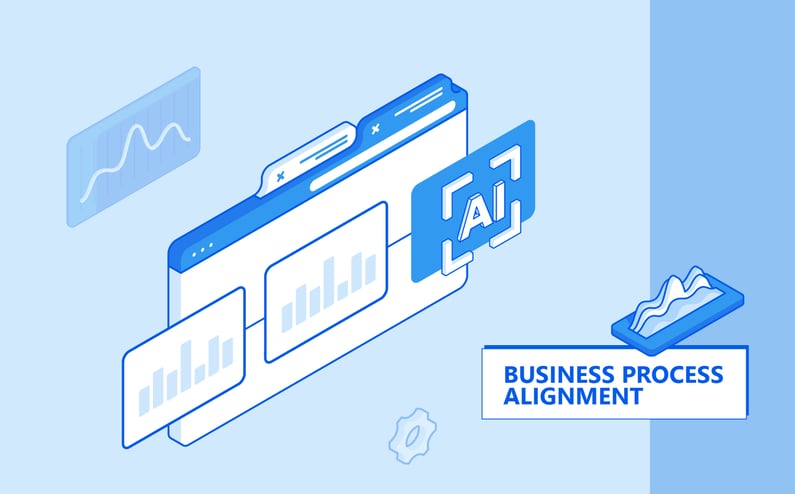
Insurance AI Has Full Integration Capabilities
While built-in AI solutions historically offered integration advantages, modern insurance AI vendors have largely eliminated this gap. Advanced API architectures, standardized data formats, and sophisticated integration platforms enable seamless connectivity between specialized AI solutions and core insurance systems.
Leading insurance AI vendors now offer integration capabilities that rival built-in solutions while maintaining the flexibility to work across multiple core systems. Even as the AI embedded in your workbench or core system adds support for new use cases, your teams will still need to implement their workflows – a process that goes far beyond simply prompting. Integrating insurance AI from a vendor provides insurance organizations with vendor independence and the ability to optimize their technology stack rather than being constrained by a single provider's AI limitations.
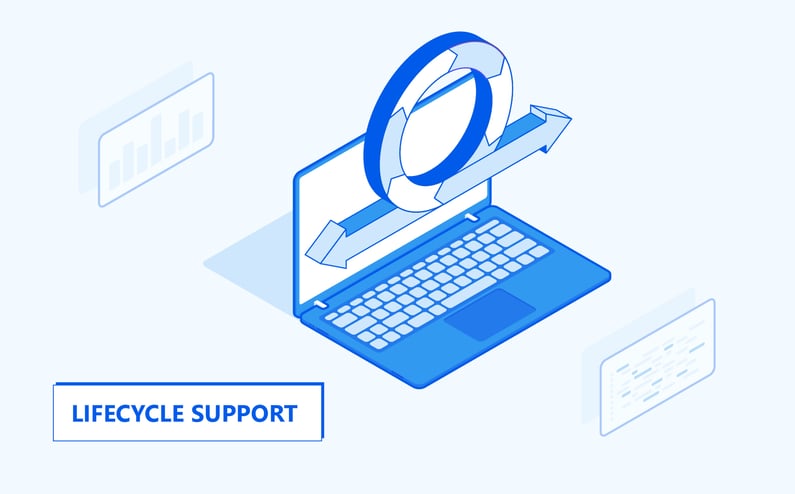
Insurance AI Vendors Align with Your Business Strategy
Perhaps most importantly, insurance AI vendors operate as strategic partners rather than feature "curators.” They invest in understanding your specific business challenges, competitive landscape, and strategic objectives.
Core system providers, while valuable partners for their primary platforms, view AI as one feature among many. Their strategic focus remains on their core software functionality. This difference in strategic alignment affects everything from customer support quality to long-term product roadmap priorities.
One significant advantage to working with an insurance AI vendor is that your AI can evolve as your business evolves. If you migrate to another core system provider, your AI system (e,g., a Roots AI Agent) allows for easy integration and is ready to produce from day one.
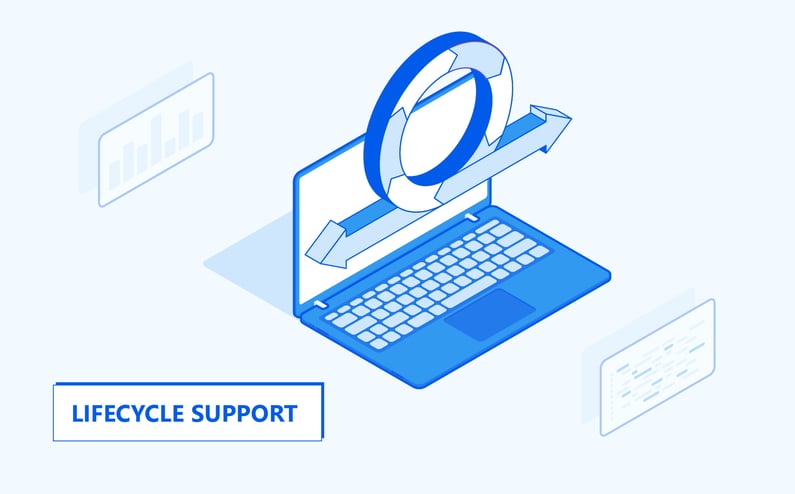
Insurance AI Experts Support End-to-End
Insurance AI vendors, like Roots, provide specialized support throughout the entire AI lifecycle – extending beyond initial implementation to ongoing optimization, model maintenance, and strategic guidance. And, when insurance regulations change or new AI capabilities emerge, insurance AI vendors typically address these developments faster than vendors that add AI into their platforms.
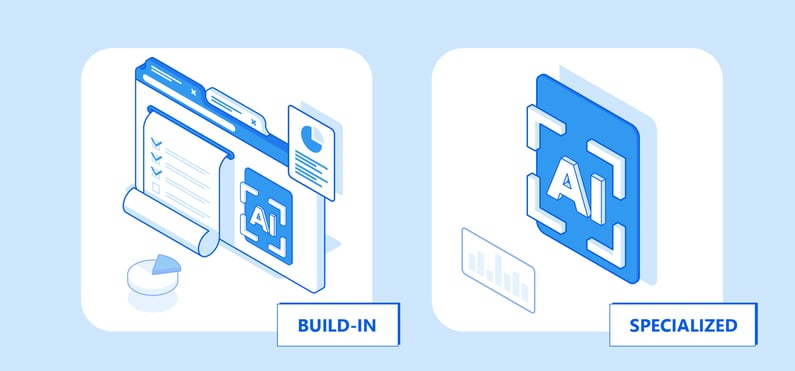
Choosing AI That Drives Strategic Advantage
The decision between built-in AI and insurance AI vendors has the potential to shape your organization's AI trajectory. Built-in solutions offer performance beyond human capability, simplicity and familiarity. Insurance AI vendors offer a strategic partnership that delivers even greater speed, accuracy, flexibility, faster implementation, and far greater access to continuous AI innovation.
The question now isn't whether to adopt AI – it's whether to approach AI as a “feature” or embrace AI as a competitive differentiator as the foundation of your organization’s AI technology transformation.
The path forward for insurance tech executives committed to maximizing ROI from their investment in core systems and workbench software is clear – partnering with vendors who share your singular focus on insurance AI innovation excellence.
Curious how insurers are putting Roots to work? Check out our case studies to see insurance-specific AI in action.




